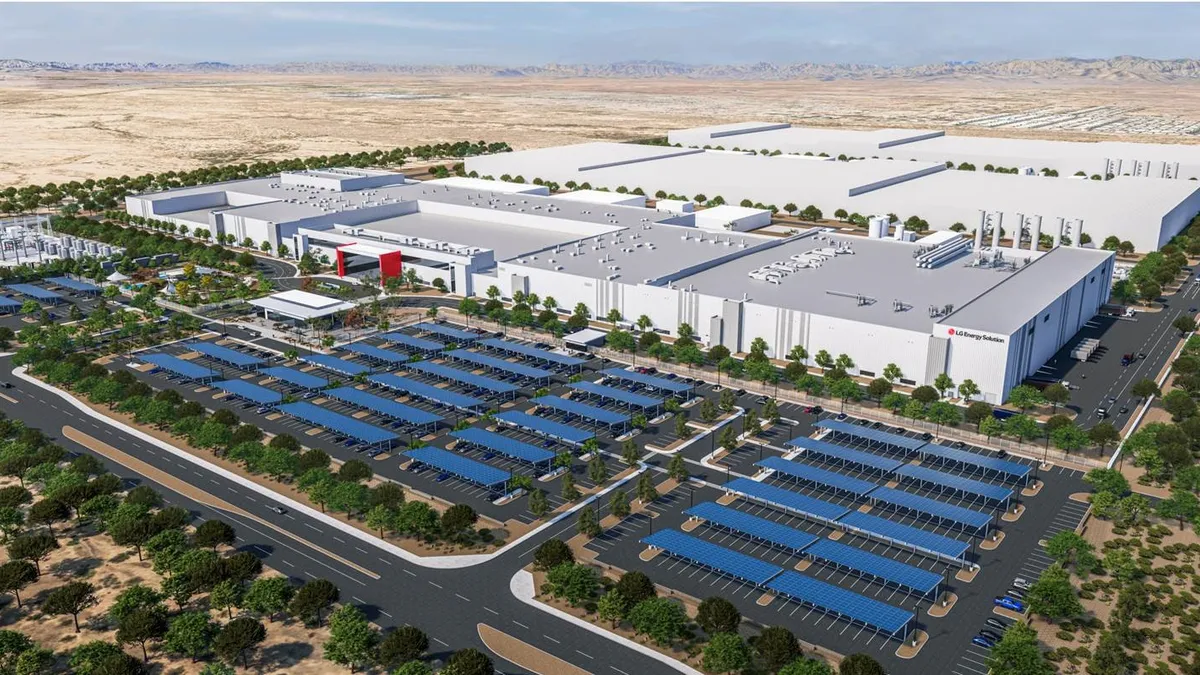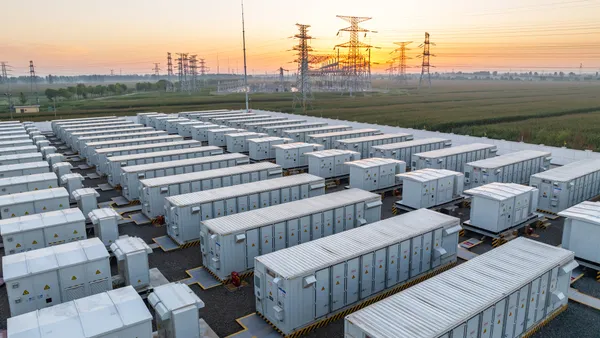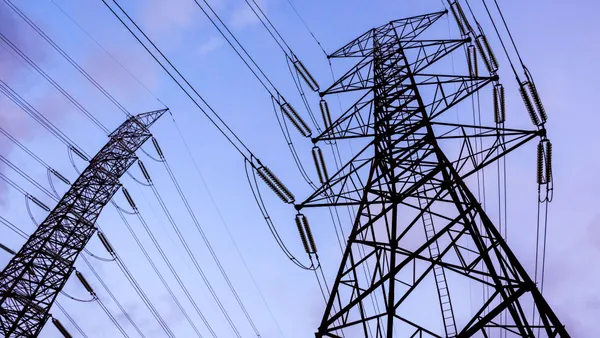Dive Brief:
- LG Energy Solution has temporarily paused a portion of its $5.5 billion battery manufacturing complex in Queen Creek, Arizona, according to a company statement shared with Construction Dive.
- The $5.5 billion complex consists of two manufacturing facilities: a stand-alone cylindrical plant and an energy storage systems battery plant. LG confirmed only the ESS battery facility will be put on hold, while the construction of its cylindrical electric vehicle battery facility will continue as planned.
- “LG Energy Solution is adjusting the pace of planned investment execution efficiently and flexibly according to market conditions,” the company’s global communications team said in the statement. “We still believe the facility will play an important role in our North America operations as we expect continued growth in the U.S. ESS market.”
Dive Insight:
The Town of Queen Creek noted in a statement to Construction Dive that the project had previously been put on pause in 2022 due to rising costs from inflation. Philadelphia, Mississippi-based Yates Construction, the general contractor for the development, resumed construction in 2023.
“Construction delays and project timeline changes are not uncommon, particularly for projects of this scale,” Queen Creek said in the statement. “The town and the county remain committed to the advanced manufacturing corridor and the continued partnership with LGES.”
The ESS battery facility, the portion of the project put on hold, will be one of the first ESS-exclusive battery production facilities in the world, according to LG. The facility will produce lithium iron phosphate pouch-type batteries for energy storage systems.
These batteries enable homeowners to store energy generated by their solar panels and use it once the sun goes down. That stored energy can also be used during a grid power outage, when solar panels are shut off for safety reasons.
The cylindrical battery plant, on the other hand, will produce 46-series batteries for electric vehicles. LG expects this portion of the $5.5 billion project to be complete in late 2025.















